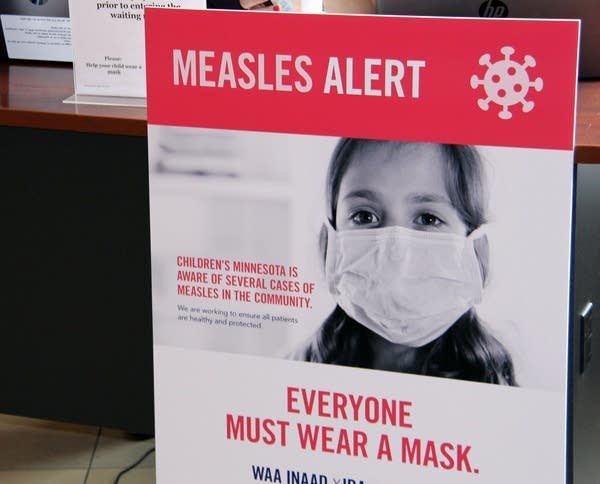At last, the measles outbreak is over

Minnesota health officials on Friday declared Minnesota's measles outbreak over, finally, and celebrate that all patients survived.
Mark Zdechlik | MPR News file
Go Deeper.
Create an account or log in to save stories.
Like this?
Thanks for liking this story! We have added it to a list of your favorite stories.


